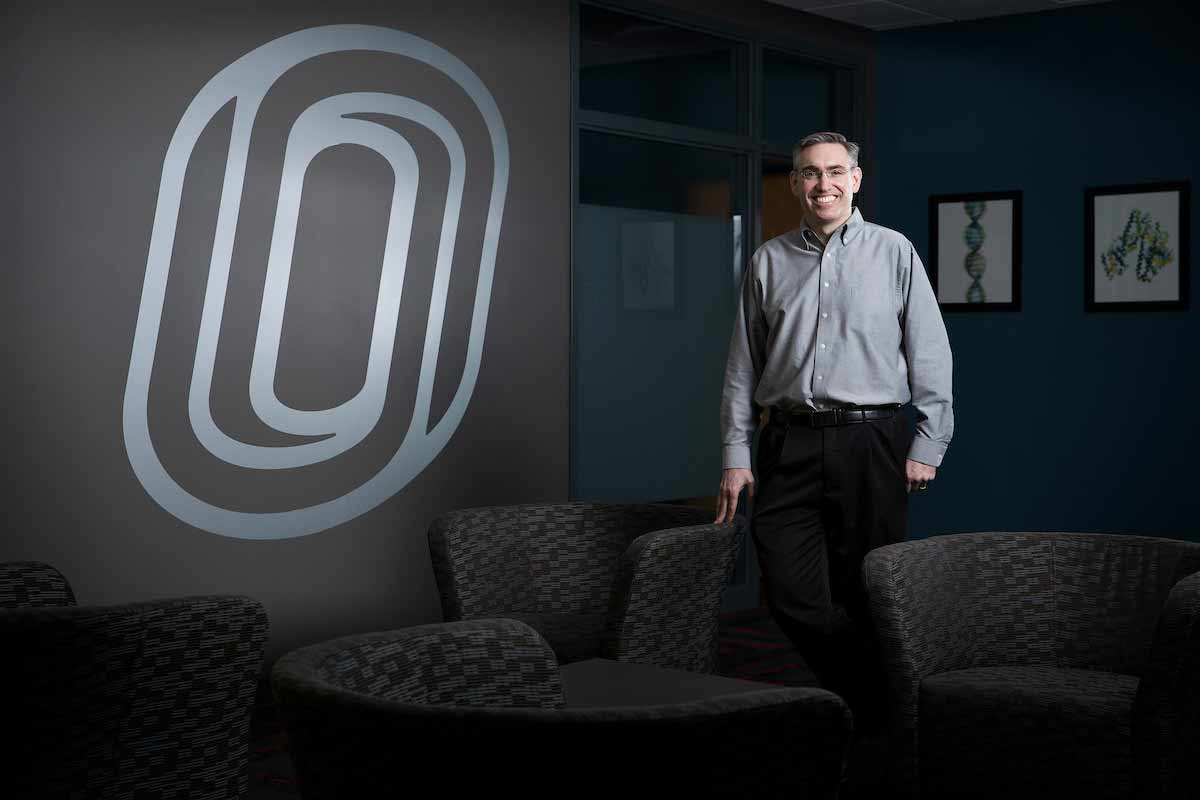#NUforNE: How a UNO Biology Professor is Creating Diversity in Omaha’s Physician Population
Paul Davis' Urban Health Opportunities Program, or UHOP, looks to crack the mold from which most physicians emerge.

About the #NUforNE Series: This article is part of the University of Nebraska's #NUforNE series. #NUforNE features students, faculty, staff and alumni from across the University who are making an impact on Nebraska.
Creating Physician Diversity: Paul Davis, Ph.D.
Medicine is a field that serves an extremely broad population, making diversity in health care critical. Health disparities affect segments of the population differently, and attitudes toward health care and treatment vary among different groups.
Diversity allows physicians to better understand patients within a larger context—such as their upbringing or socioeconomic realities. When a patient can’t find providers that resemble them, their culture, or other facets of their life, it can delay or prevent them from seeking timely care.
Physician Diversity Requires Med School Diversity
Although the medical profession has made great strides in welcoming a broader spectrum of doctors, there is work to be done. Racial and ethnic minorities are disproportionately absent from medicine. Over 56 percent of active physicians are white. About 17 percent are Asian. Less than six percent are Hispanic, and five percent are black.
This extends to students applying to medical school. Not only are students from lower socioeconomic groups underrepresented; they are more likely to leave medical school within the first two years. To create a more diverse physician population, it’s important to create a more diverse and better-prepared medical student population.
When providers in underserved areas understand their patients, it makes patients feel connected. Patients who trust their doctor seek healthcare when they need it—which lowers costs for them and for the larger community.
This is where UNO’s Paul Davis steps in. Davis, a professor with a Ph.D. in molecular biology and expertise in infectious disease, is passionate about working with undergraduate students. He moved to Omaha in 2010 to work at UNO, where he could not only teach and continue his research—but also foster a close connection to UNMC and its resources. He runs one of the largest undergraduate labs at UNO, with 20 students working in his lab.
Supporting First-Generation Students
Davis’s skills and interests put him in the perfect position to help UNO students become better prepared for health careers. 37 percent of students at UNO are first-generation students; their parents did not attend college. This means they need unique mentorship and support to prepare them for medical school, and Davis was determined to create a program to help them. He now serves as director of the Urban Health Opportunities Program (UHOP), a pipeline program he helped create that puts UNO undergrads from underrepresented groups on the road to medical school.
“There’s a great deal of support offered to UHOP students,” said Davis. “For some, their parents haven’t gone to college—imagine the complexities helping them prepare for medical school. We offer not only financial support but help in preparing them for what’s ahead.” The program offers undergraduate tuition assistance, MCAT preparation, mentoring by UNMC medical students, help with medical school applications—and guaranteed admission to UNMC's M.D. program upon successful program completion.
Giving Back to the Community
Started in 2016, the program has run two cohorts through a full four-year program; 83 percent of UHOP participants have gone on to medical school. The national average for medical school acceptance is 42 percent. “UHOP is still young,” said Davis. “The first measure of success is how many of these students are accepted into medical school. The second is graduating from their program, and the third is how many of these new physicians decide to practice in underserved areas in Nebraska.”
Which brings the conversation full circle—to the need for diversity in the physician population. “Omaha has many underserved communities, and it’s important to graduate health care providers who are from those communities,” said Davis. “They need an undergraduate experience that helps bridge the gap—not just to get into medical school, but to excel in grad school and in life.”
About the University of Nebraska System
The University of Nebraska is the state’s only public university system, made up of four campuses – UNL, UNO, UNK and UNMC – each with a distinct role and mission. Together the campuses enroll more than 51,000 students and employ 16,000 faculty and staff who serve the state, nation and world through education, research and outreach. For more information and news from the University of Nebraska, visit nebraska.edu/news.
Read UNO #NUforNE Stories:
- Shifting the Focus from Crime Perpetrators to Crime Victims
- Creating a Food Revolution with Indoor Farming
- Creating Physician Diversity
- Helping Small Businesses Grow
- Diversifying Aviation Talent
- Uniting Art and Medicine
- Breaking New Ground in Biomechanics
- Applying Business Know-How to National Defense
- Bridging the Rural Digital Divide
- Improving the Criminal Justice System
- Arming Companies Against Cyber Attacks
- Getting Peripheral Artery Disease Patients Moving Again
- Preventing Nebraska Brain Drain
- Transforming the Future of ESL Education
- Innovating with Herd Management Technology